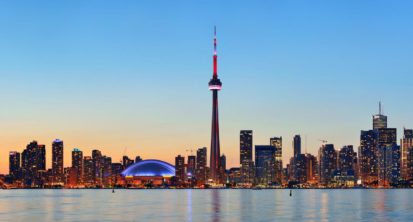Immigration updates for the APAC and EMEA regions
Asia-Pacific
India: Flight extension
The Indian government has extended the international flight ban until September 30, 2021, due to an increase in Covid-19 cases. This doesn’t apply to international all-cargo operations and the Directorate General of Civil Aviation (DGCA) approved flights.
This summary was prepared using information obtained from the Times of India.
Philippines: 9g Visa Issuance for Foreign Workers
The 9(g) (Commercial) work visa under IATF Resolution No. 131-A refers to a visa applied for and processed in the Philippines by the Philippine-based employer despite the foreign applicant’s absence in the country. It can be filed once the AEP Card is approved and issued by the Department of Labor and Employment (DOLE). The 9g 131-A may already be filed with the Bureau of Immigration (BI).
Click here to find the documentation requirements.
The processing period for approval is 21 working days upon submission.
Note: processing time varies depending on the government agencies involved, their respective operations guidelines and their workload.
For entry purposes, the 9(g) 131-A visa shall initially be valid for 90 days from the date of issuance, and the Immigration Officers at the port of entry shall indicate “9g 131-A” as the arrival stamp. The visa is subject to registration and implementation at the BI upon arrival. It will be converted to a regular 9(g) visa depending on the contract of employment and AEP.
This summary was prepared using information obtained from the Bureau of Immigration.
Singapore: Border measure – update
The Singapore government have placed countries/regions into four different categories as below:
Category I: Travelers from Hong Kong, Macau SAR, Mainland China, and Taiwan can enter Singapore and will only be subject to the on-arrival Covid-19 PCR test.
Category II: Travelers from Australia, Brunei Darussalam, Canada, Germany, and New Zealand will be subject to a seven-day Stay-Home Notice (SHN).
Category III: Travelers from Austria, Belgium, Denmark, Italy, Japan, Luxembourg, Norway, Switzerland, and South Korea will be subject to 14-day SHN at dedicated SHN facilities. Fully vaccinated travelers can serve this at a suitable accommodation of their choice.
Category IV: Travelers from other countries will be subject to 14-day SHN at dedicated SHN facilities, except Bangladesh, India, Myanmar, Nepal, Pakistan and Sri Lanka, as entry is not allowed.
Fully vaccinated people can travel via the Vaccinated Travel Lane (VTL). Short-term visitors or Long-term Pass holders that are fully vaccinated arriving from Brunei Darussalam and Germany must apply for the Vaccinated Travel Pass (VTP) if they wish to enter Singapore. Further information regarding the VTL requirements can be found here.
This summary was prepared using information obtained from the Government of Singapore.
Sri Lanka: Visa fee increase
As per the new Immigration and Emigration Regulations in Sri Lanka, the visa fee and the penalty for overstay in Sri Lanka has increased. The penalty for overstay without any valid visa is US$ 500 in addition to the visa fee. The new amended visa fees can be found here.
This summary was prepared using Information obtained from the Daily News.
South Korea: Launch of E-KTA for overseas visitors
South Korea has launched K-ETA, Korea Electronic Travel Authorization system for overseas visitors from September 1, 2021. As most of the visa waivers were suspended due to the pandemic, visa-free foreign visitors will obtain electronic authorization before entering the Republic of Korea by submitting relevant information online, such as their travel information. The purpose of travel should be tourism, visiting family, attending events or meetings, or commercial business (visits, where profit is derived, are excluded).
Visa-free foreign visitors need K-ETA approval to obtain the boarding pass and to enter the country. K-ETA is valid for multiple trips over two years, and the application fee is 10,000 KRW (US$8.64) per person. A valid passport, e-mail address, fee and photo ID are all required for K-ETA approval.
With the K-ETA, foreign visitors are exempt from submitted the arrival card and the immigration process will be quicker.
K-ETA is mandatory for nationals or citizens of 66 visa-waiver countries and 46 designated visa-free entry countries who plan to travel to Korea. However, due to Covid-19, from September (1*) nationals of 49 countries/regions, where visa-free entry is available and Priority Entry (2*) (Business) Persons from the 63 visa-free entry suspended countries are able to apply for K-ETA.
- List of K-ETA Required Countries (1*):
- 21 eligible countries for K-ETA (from May 3, 2021): Albania, Andorra, Barbados, Dominica, Guam, Guyana, Holy See, Ireland, Malta, Mexico, Monaco, New Caledonia, Nicaragua, Palau, Saint Kitts-Nevis, Saint Vincent and the Grenadines, San Marino, Slovenia, United Kingdom, United States of America, Venezuela.
- 28 additional eligible countries for K-ETA (from September 1, 2021): Greece, Netherlands, Denmark, Germany, Latvia, Romania, Luxembourg, Lithuania, Belgium, Bulgaria, Cyprus, Sweden, Spain, Slovakia, Estonia, Austria, Italy, Czech Republic, Croatia, Portugal, Poland, France, Finland, Hungary, Norway, Switzerland, Liechtenstein, Iceland.
- List of K-ETA Suspended Countries (2*): Antigua and Barbuda, Argentina, Australia, Bahamas, Bahrain, Bosnia and Herzegovina, Botswana, Brazil, Brunei Darussalam, Canada, Chile, Colombia, Costa Rica, Dominican Republic, Ecuador, El Salvador, Eswatini, Fiji, Grenada, Guatemala, Haiti, Honduras, Hong Kong, Israel, Jamaica, Japan, Kazakhstan, Kiribati, Kuwait, Lesotho, Macau, Malaysia, Marshall Islands, Mauritius, Micronesia, Montenegro, Morocco, Nauru, New Zealand, Oman, Panama, Paraguay, Peru, Qatar, Republic of South Africa, Russia, Saint Lucia, Samoa, Saudi Arabia, Serbia, Seychelles, Singapore, Solomon Islands, Suriname, Taiwan, Thailand, Tonga, Trinidad and Tobago, Tunisia, Turkey, Tuvalu, United Arab Emirates, Uruguay.
Priority Entry applicants will use both previous visa issuance methods and K-ETA Application: K-ETA website (Korean, English) or access the mobile app (K-ETA) and apply 24 hours before boarding. The relevant quarantine restrictions remain in place for overseas arrivals.
This summary was prepared using information obtained from the Ministry of Justice.
Thailand: Certificate of Entry and Visa Issuance for non-Thai essential travelers from India update
The Royal Thai Embassy/Consulate in India announced that the Certificate of Entry (COE) and visa issuance for non-Thai essential travellers from India to Thailand will continue to be required.
The two groups of non-Thai nationals that are permitted to apply for the COE are as follows:
- Spouse, children, and Thai nationals who are travelling together or returning to a family in Thailand.
- Business people, experts, investors with residence/work permits in Thailand or those invited from Thai government agencies and their spouse and children (below 20 years old).
Applicants must register their requests with proof of urgency to the relevant Embassy:
- Royal Thai Embassy in New Delhi
- Royal Thai Consulate in Chennai
- Royal Thai Embassy in Mumbai
This summary was prepared using information obtained from the Royal Thai Embassy in India.
Disclaimer: The above information is provided for general information purposes only and should not be construed as legal advice. If you have any further inquiries regarding the applicability of this information, please contact Debra Jane Beynon, Regional Immigration Manager (APAC).
Europe, Middle east and Africa
Italy: Amendments in the Posted Workers notification procedure and extension process 
The Italian authorities have approved a decree varying the posted workers’ notification procedure. A posted worker’s stay in Italy can be extended beyond 12 months for up to 18 months. The new rules will be more restrictive for employers.
Decree 170/2021 states the procedure to justify the need for posting extension after 12 months:
- The justification for long-term postings must be communicated to the Ministry of Labor and Social Policies (“Ministero del Lavoro e Delle Politiche Sociali”) within five days after 12 months.
- For existing postings, the duration of more than 12 months should already be predetermined at the beginning for it to be approved.
- Long-term ongoing postings will be handled within 30 days from the date of entry.
Decree n. 122/2020 states that the maximum posting period is reduced to 12 months and extendable to 18 months in case of motivated notification to the Ministry of Labor. 12 months (or 18 months) later, the posted worker will be subject to the work conditions of the host state, including social security rules.
When a posted employee is replaced for the same task or location, the 12 months (or 18 months) will be combined.
No source available at the time of writing.
Disclaimer: The above information is provided for general information purposes only and should not be construed as legal advice. If you have any further inquiries regarding the applicability of this information, please contact Laxmi Vikraman, Regional Immigration Manager (EMEA).
We track policy changes in over 120 countries. Find out how we can help you in this short video.




